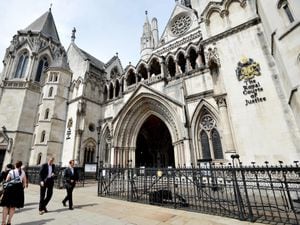Inquest overturns previous sepsis finding in six-year-old’s death
Coco Bradford died from a rare condition that causes the destruction of red blood cells and not as a result of failure by medics to treat sepsis.

A six-year-old girl thought to have died from sepsis was in fact suffering from a rare blood condition triggered by E.coli infection, an inquest has found.
Coco Rose Bradford died on July 31 2017 at the Bristol Royal Hospital for Children, having been transferred from the Royal Cornwall Hospital, known as Treliske hospital, three days earlier.
Her death was the subject of an independent review published in autumn 2018, which found opportunities had been missed to treat sepsis and was critical of the care given by staff at Treliske.
Specifically, doctors were criticised for failing to administer antibiotics sooner.
The Royal Cornwall Hospitals Trust even apologised to Coco’s family for failing to recognise and treat sepsis.

But on Friday, coroner Dr Andrew Cox, sitting in Truro, found that Coco had died from multiple organ failure caused by haemolytic uraemic syndrome (HUS).
The condition is caused by toxins given off by E.coli infection and sees the destruction of red blood cells followed by the clotting of platelets in the small blood vessels.
It mainly affects the kidneys but can also affect other organs, including the brain – particularly in children – causing them to become confused and, in some cases, have seizures.
HUS can cause tissue death in the brain, resulting in serious brain damage.
There is no proven treatment for HUS, but antibiotics are not recommended because they can cause the E.coli to release its toxins, worsening the disease.
During the course of an eight-day inquest, it emerged that a microbiology report making a finding of “overwhelming sepsis/HUS” had been taken out of context.
In his conclusions on Friday, Mr Cox remarked that none of the other tests had indicated Coco had a diagnosis of sepsis.
He said it was “deeply regrettable” that the family had been misled for the past four years, adding: “As a matter of fact, I find Coco had overwhelming HUS, not overwhelming sepsis.”

During the inquest, the court heard Coco’s family felt staff at Treliske were “dismissive, rude and arrogant” and did not take her condition seriously.
There were also failings in care such as the fact her blood pressure was not taken until 36 hours after she was admitted, and “sub-optimal” fluid management.
Mr Cox found that although staff had recognised the risk of HUS from the moment Coco was admitted, this was not clearly set out in a “robust” management plan for all involved in her care.
He noted that doctors had failed to give Coco proper fluids throughout the day on July 27, describing it as an “obvious basic failure of care” which undermined previous good treatment given by staff.
But he concluded the delay initiating “robust fluid therapy” was “not causative of her death on a balance of probability”.
There was a delay in escalating Coco’s care to intensive care staff at Treliske, Mr Cox found, despite the fact a consultant had discussed transferring her to an intensive care unit Bristol.
The coroner said this lack of communication had made Coco “something of a hostage to fortune”.
Mr Cox found Coco died from natural causes, specifically HUS arising as a complication from E.coli infection.
He said it was important to state that Coco did not have sepsis, as has been widely accepted for the past four years.
“The suggestion Coco died from sepsis has, as I understand it, been widely mis-reported in both local and national media,” he said.
“It is, in my judgment, in the public interest to correct the position.”
Coco’s family said in a statement they needed time to come to terms with the conclusions of the inquest, adding: “Four and a half years after Coco died, three years after the Trust fully accepted a series of failings in their care, we heard for the first time in court the suggestion that Coco did not have sepsis.”
They said that further disclosures about failings in Coco’s care made them feel that “we have been misled for years”.
“Whatever the court found we will never be able to erase the experience of our time in Treliske from our minds – in many ways we’re left with more questions than answers,” they said.
“Coco should now be at secondary school, she should be brightening our lives with her gorgeous smile and living her best life. We will never come to terms with life without Coco in it.”
Royal Cornwall Hospitals NHS Trust has been approached for comment.





